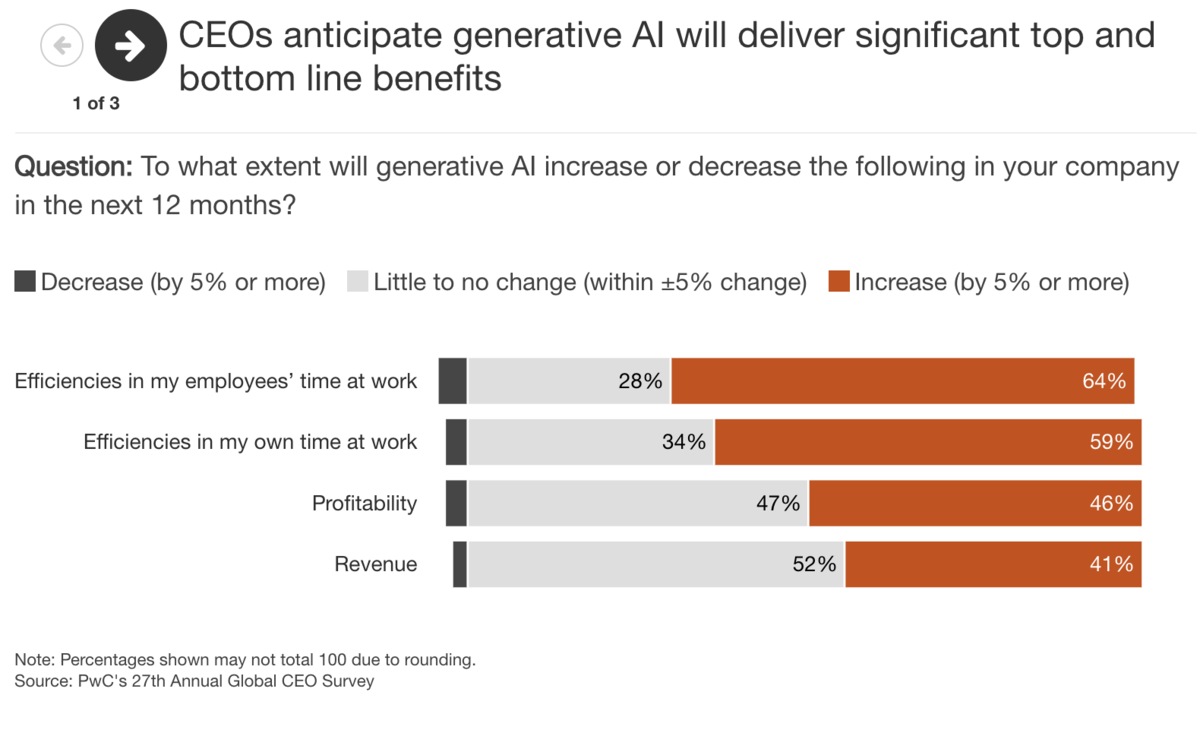Griffin on Tech: AI is eating jobs - starting at the tech companies building AI
German enterprise resource planning software company SAP said this week it was undertaking a major restructure of its business that would affect 8,000 employee positions.
It would increasingly build artificial intelligence into its products and platforms this year, but also pursue “AI-driven efficiencies” in-house.
As Australian Financial Review technology editor Paul Smith put it: “Simply, SAP figures it can now automate some of the roles performed by thousands of well-paid, white-collar workers.”
Think accounting, admin and legal staff, copywriters, marketing and admin roles. Software development will increasingly take a trim as aspects of coding are automated.
This is just the beginning of AI’s role in eliminating and changing white-collar professions forever and it entirely makes sense that the tech companies are applying their innovations to their own operations first - despite the AI boom leading to surging market values for many of them.
A blizzard of gaming layoffs
Microsoft started the new year by becoming a US$3 trillion company for the first time, second only to Apple. At the same time, it announced 1,900 layoffs in its gaming divisions Activision Blizzard and Xbox, following last year’s US$68 billion acquisition of Activision by Microsoft.
While 2023 started with a flurry of Big Tech layoffs, 2024 has seen game development companies Riot Games, Google, Discord, Twitch, and Unity make significant trims. Unity made a radical u-turn on its Wellington presence late last year, unwinding its ownership of Weta Digital, with 200 jobs affected - hopefully most of them will return to Sir Peter Jackson and Dame Fran Walsh’s WetaFX.
Creative people will always be highly valued in the games industry, but development studios have been quick to embrace AI to lower their costs.
“Advancements in the field, especially in generative AI, are helping dev teams do everything from creating high resolution assets, vast, intricate worlds and game level, as well as NPC (non player character) interactions, special effects and more,” writes Israel-based software expert Dori Exterman.
Services such as Adobe Firefly and Autodesk’s Maya are helping game designers create high-quality images and animations using text prompts. To remain competitive in 2024, games development companies, which won a key tax rebate from the government last year to counter subsidies offered in Australia, will need to embrace AI and reskill staff to make the most of it.
More broadly, every New Zealand company will need to be exploring where AI can play a role, and think carefully about the implications for their workforce. The sense I get, interviewing people in the tech sector here and abroad, is that US companies are laser-focused on AI, not so much here.
But a PwC survey published this month surveyed 4702 company chief executives across 100 countries and a quarter of them expected AI to lead to headcount reductions of at least 5% this year.

Source: PwC
“Being transparent, purpose-driven, and trusted regarding AI-related plans and decisions can help employees who are wary of AI (and what it may mean for their jobs) feel more comfortable experimenting—and innovating—with it,” PwC advised.
Media and entertainment, banking, insurance and logistics are first in line to feel the impact of AI, PwC added.
Make no mistake, 2024 will be the year where automation and AI really start to shake up the workplace. If you have a job that sees you spend most of your time sitting in front of a computer, there’s a good chance at least some of what you do will be replaced by AI. Now is the time for employers and employees alike to get ready for the transition.
